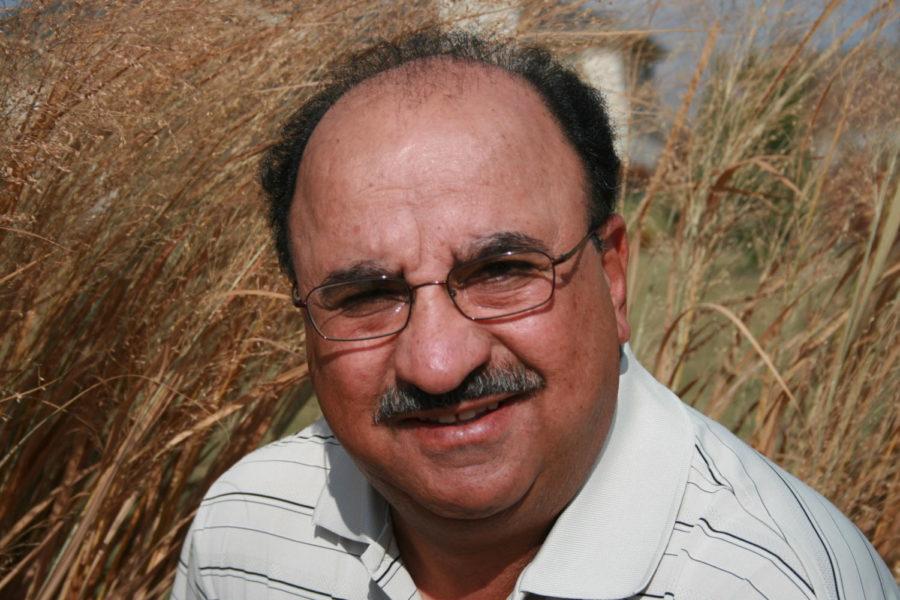Professor of agronomy co-contributes to national climate report
Mahdi Al-Kaisi, professor of Agronomy, worked on an international team on a National Academies Climate Report.
November 15, 2018
Mahdi Al-Kaisi, professor of agronomy at Iowa State, recently co-authored on a National Academies Climate report on carbon dioxide removal and the positive impact it could have on climate change.
The report, titled “Negative Emissions Technologies and Reliable Sequestration: A Research Agenda,” was commissioned by the National Academies of Sciences. Professor Al-Kaisi co-authored the chapter on Terrestrial Carbon Removal and Sequestration.
Al-Kaisi has been researching the short- and long-term effects of tillage and residue removal on soil carbon at Iowa State for many years.
“Carbon dioxide emissions don’t know boundaries,” Al-Kaisi said.
Al-Kaisi said, as a team, the group wanted to create different ideas on how to remove carbon dioxide from the atmosphere. In order to accomplish this, some approaches included bioenergy crop capture and coastal blue carbon removal.
Al-Kaisi focused on the benefits of terrestrial carbon removal and sequestration, such as the reduction in climate change.
Terrestrial carbon removal and sequestration is a process where carbon storage in the soil is improved by making changes in forest management and agricultural practices.
“Removing the CO2 from the air is going to do us a lot of good,” Al-Kaisi said.
If farmers use techniques, such as zero tillage, it doesn’t create a disruption in the soil, which in turn aids the process of removing carbon dioxide from the air, Al-Kaisi said.
There are other benefits to non-tilled soil, Al-Kaisi said. Untouched soil is different, as heavy rain isn’t able to erode the soil as easily, and there is an increase in the capacity of the soil to get more nutrients to the plants, and those benefits are translated to the value of the crops.
Al-Kaisi said that there are no downsides to this process.
Al-Kaisi said the report took about 18 months to write and experts from other countries such as Germany and France were invited to workshops that were hosted by the committee to expand further research and knowledge.
“When we reduce the carbon in the air it will help in mitigating climate change effects,” Al-Kaisi said.
Al-Kaisi said he believes there is a real urgency to address this issue if the U.S. wants to have a sustainable agriculture and economy.
“These events don’t just happen out of the blue” Al-Kaisi said. “That’s why we need to address these issues.”
Al-Kaisi said the issues written in the report, as well as the effects of climate change, not only impacts the US but the rest of the world as well.
“We need to be neutral, tell the truth and present the facts,” Al-Kaisi said. “If we aren’t going to do anything human lives, health and the economy can be affected.”
Al-Kaisi said the entire study took two years because the committee wanted to be able to present solid evidence to policy makers.
“To convince policymakers about the urgency of any issues, you need to tell them the truth,” Al-Kaisi said.
Al-Kaisi said certain committees in the U.S. Congress were briefed about the report and some of its findings.
Al-Kaisi said farmers could apply techniques such as no-till or cover crop to become more environmentally sustainable.
“We need to provide incentives to farmers to do it,” Al-Kaisi said. “In times of extreme weather events we need to have a resilient soil system.”
Although the economics of production might not work in farmers favor, the processes will offer other benefits, Al-Kaisi said. Tax payers in turn will not have to pay as much to clean the water, something that is an ongoing issue for Iowa taxpayers.
“We need to not be thinking about the short term gain but the long term in managing agriculture systems,” Al-Kaisi said.







